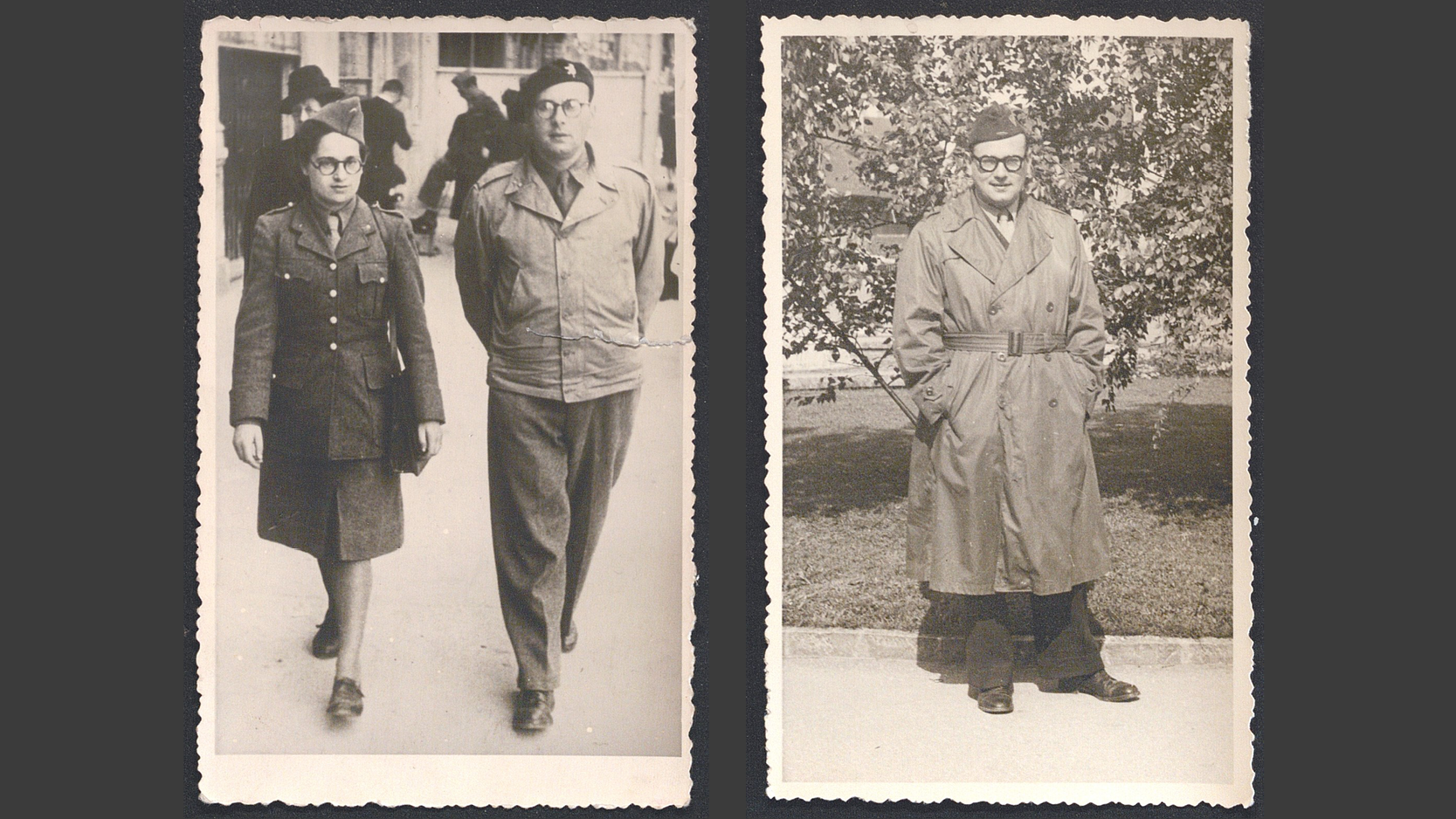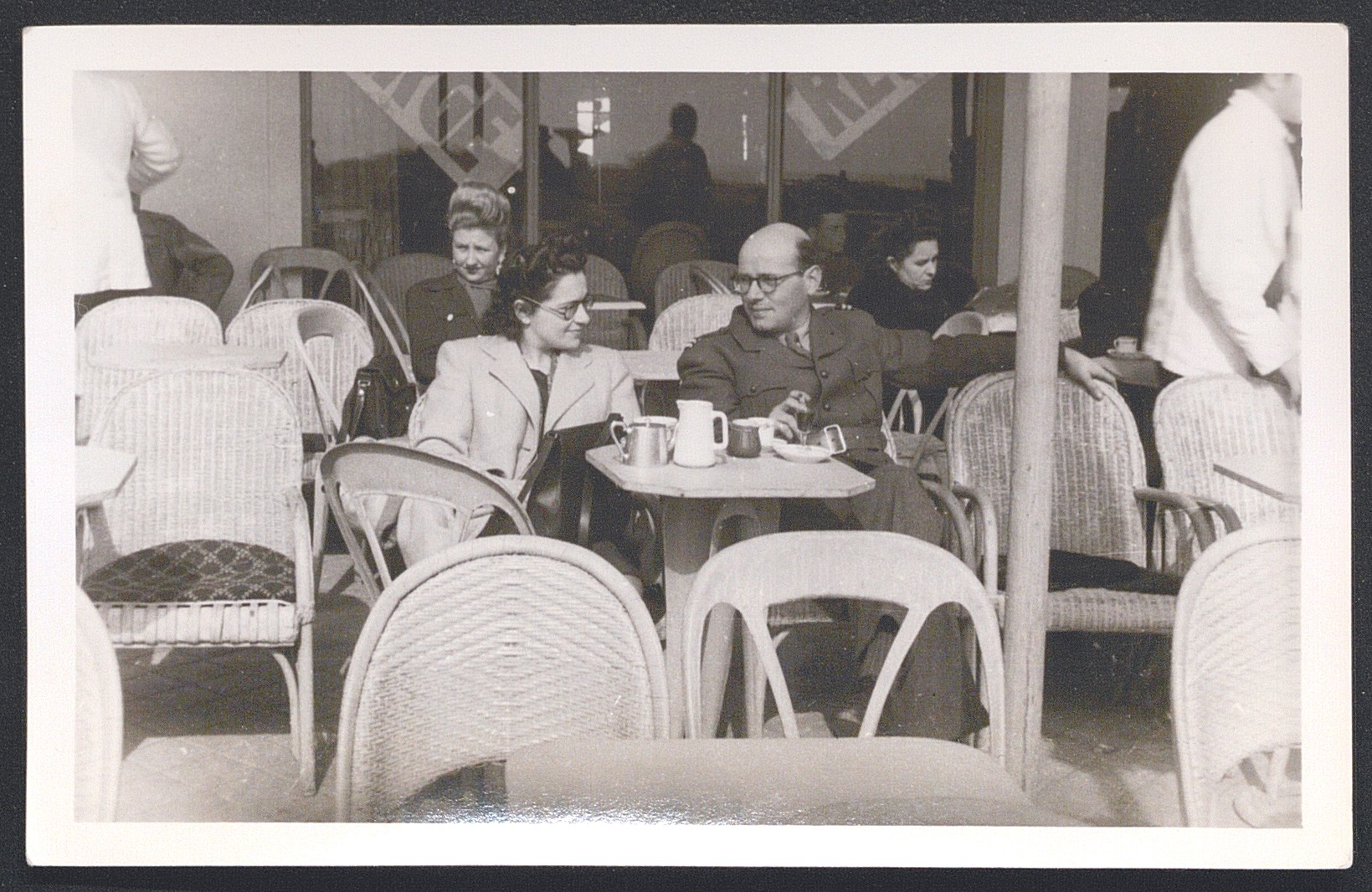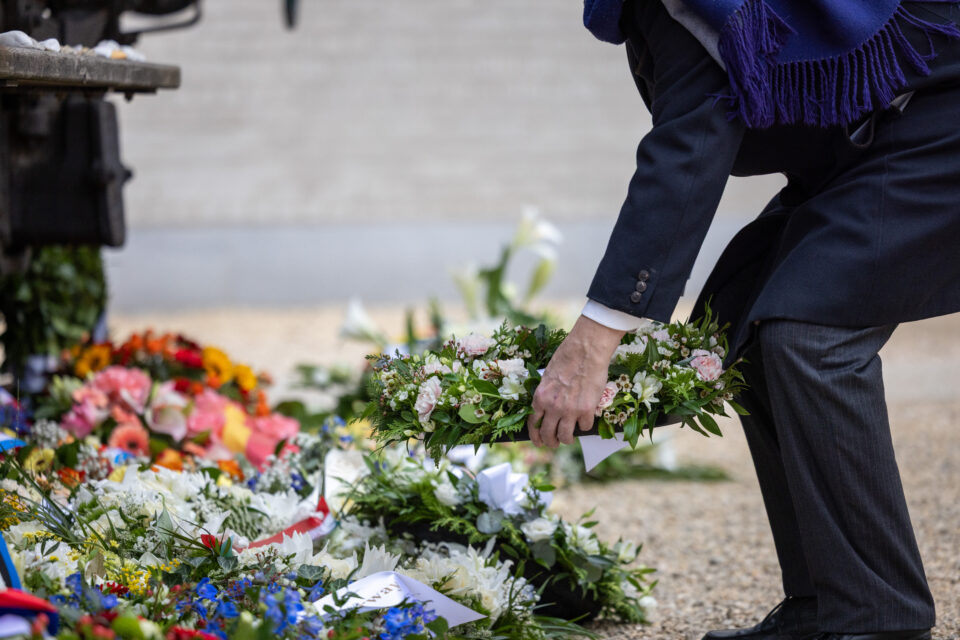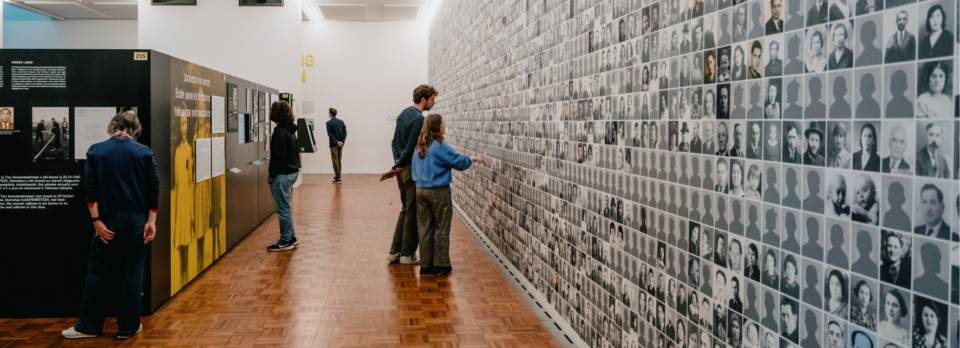This photo shows Adolphe Littmann and his wife Hélène Stir enjoying themselves on a terrace in 1945, after the war. Adolphe’s daughter Mimi donated a special collection from her father to Kazerne Dossin, including photographs, letters, certificates, passports, brooches, buttons and bracelets belonging to Adolphe Littmann.
Who was Adolphe Littmann?
Adolphe Littmann, born on November 10, 1911, in Antwerp, was raised in a Belgian-Jewish family. When World War II broke out, he and his wife, Hélène Stir, fled to southern France, where he played a key role in the resistance against the German occupation. In Toulouse, Adolphe met retired civil servant André Thouroude, with whom he collaborated to save Jewish families. Together, they founded the disinfection company “Désinfecta,” which served as a cover for employing Jewish workers under false identities. This courageous initiative provided protection for many Jews, even after southern France was occupied by the Germans in 1942.
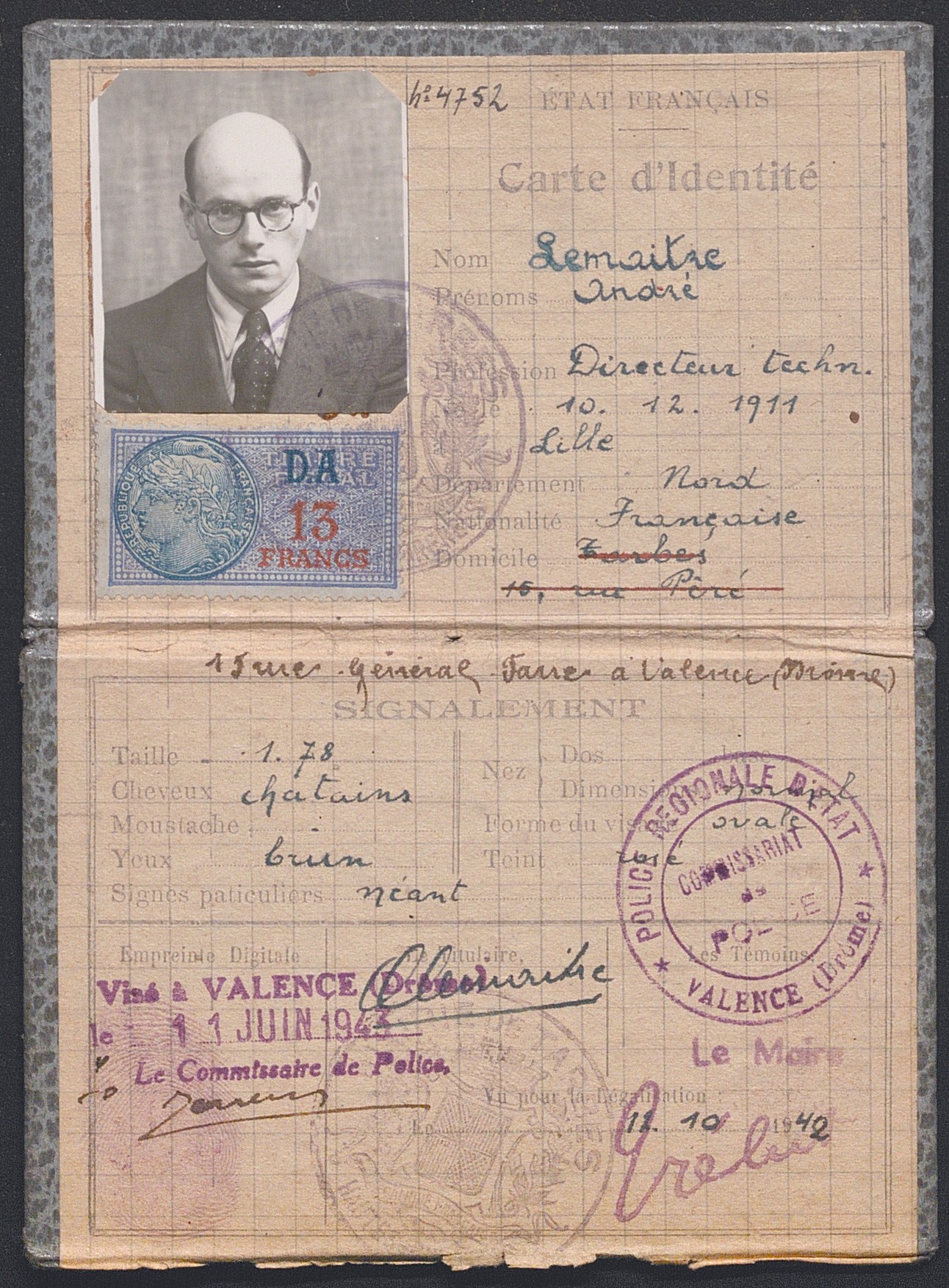
Resistance fighter
Operating under a false name of “André Lemaître,” Littmann made significant contributions to the resistance. He was not only involved in organizing safe houses for Jewish refugees but also participated in resistance operations. On D-Day, June 6, 1944, Littmann sabotaged an SS barracks in Valence to prevent the Germans from relaying news of the Allied invasion of Normandy. At great personal risk, he filled the building with disinfection gas, keeping the Germans at bay for 24 hours by claiming there was a rat infestation. This act bought the Allies valuable time.
After the war, Littmann was recognized for his brave acts of resistance. The French authorities granted him permission to retain his resistance alias, allowing him to live as Adolphe Littmann-Lemaître. In 1945, Thouroude closed the “Désinfecta” business, and the Jewish workers who had been employed there were able to return safely to their home countries.
After the war
Following the war, Littmann resumed his career, beginning work with the Société Générale de Surveillance (SGS), where he contributed to the rebuilding of Europe. He was responsible for overseeing the distribution of aid in war-torn areas, particularly in Germany, where chaos and corruption often hampered the delivery of essential goods. As a representative of SGS, he worked closely with the US Army Exchange Service, supervising the inspection of goods and coordinating shipments in the American-occupied zone of Germany.
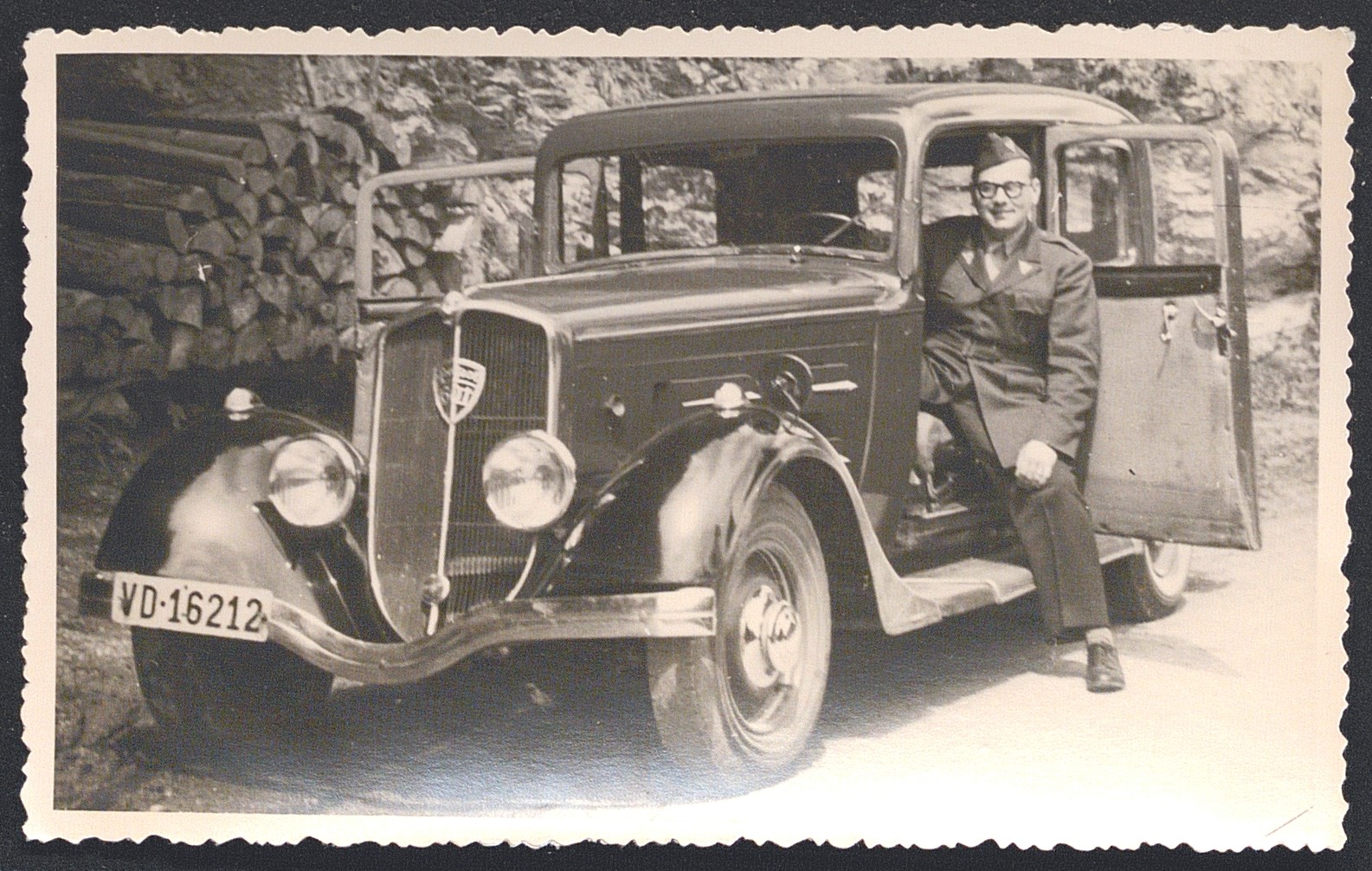
Passion for Bridge
In addition to his work with SGS, Littmann had a deep passion for bridge. In the post-war years, he became a prominent figure in the international bridge community. From 1970, he served as secretary of the World Bridge Federation, where he helped develop the rules for international bridge competitions. He played a significant role in founding the European Bridge League and, alongside Guido Barbone, conceived the idea of the European Cup, a trophy awarded to the best national bridge clubs. This prestigious prize was later named in his honor.
Littmann’s contributions to the world of bridge were recognized in 1973, when he was named “Personality of the Year” by the International Bridge Press Association. He was also frequently a member and captain of the Belgian national bridge team, winning several national and international tournaments. His wife, Hélène, continued to support him and was honored in 1987 for her contributions to the administration of bridge affairs.
Adolphe Littmann passed away on November 26, 1980, in Antwerp, at the age of 69, following a heart attack.
